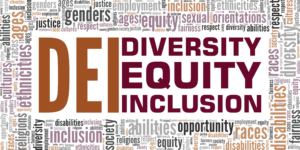The push for diversity, equity, and inclusion (DEI) has become a cornerstone of many organizations, including nonprofits. However, a recent federal court appeal forced the suspension of funding to Black women-owned businesses by the Fearless Fund, and this may have implications for other nonprofits’ ability to use race-conscious determinations in scholarships, grants, awards, and more. Learn more about DEI funding and what nonprofits need to know, especially if this case goes before the Supreme Court of the United States (SCOTUS).
DEI funding backlash: how did we get here?
According to a USA Today article, the Fearless Fund was founded by Black women to back Black women, who received less than 1% of the $215 billion in venture capital funding in 2023. When their DEI funding model was previously challenged in 2023, a U.S. District Court Judge ruled that the Fearless Fund’s grant program is a form of protected speech under the First Amendment. 
Also in 2023, some major decisions and political actions were taken regarding affirmative action and DEI funding:
- Students for Fair Admissions v. Harvard (600 U.S. 181) – in a landmark SCOTUS decision, the court held that race-based affirmative action programs in college admissions processes violate the Equal Protection Clause of the Fourteenth Amendment
- Conservative governors prohibit DEI funding and practices – Florida Governor Ron DeSantis and Texas Governor Greg Abbott spoke out against state funding to be used toward DEI initiatives, notably in public universities. The Florida Board of Governors actually voted to prohibit it.
In 2024, DEI funding and programming has been upheld and protected, notably in employment cases, but it demonstrates sentiments that may have propelled the U.S. Court of Appeals for the 11th Circuit’s decision to uphold the claim that Fearless Fund’s “grant program violates section 1981 of the 1866 Civil Rights Act, which prohibits discrimination on the basis of race when enforcing contracts.” Despite the organization’s legal defense, the decision reflected that the grant program qualified as a contract, which is protected by section 1981, as well as overturned the previous judgment that the program was protected by the First Amendment.
The 1866 Civil Rights Act, established in the Reconstruction Era, was intended to protect formerly enslaved people from economic exclusion and to provide full and equal benefit of all laws and proceedings. Today, it’s being leveraged to challenge programs intended to benefit minority-owned businesses and DEI funding.
How nonprofits can respond to the Fearless Fund court appeal
Ultimately, the Fearless Fund backlash serves as a wake-up call for nonprofits to reevaluate their efforts and current DEI funding initiatives. As reflected in some of the decisions above, groups are actively seeking to challenge how DEI programs violate the non-discriminatory provisions of Section 1981 and Title VII, i.e. employer activities as well.
Nonprofits should conduct a thorough review of all selection practices and criteria to determine whether risks of discriminatory claims exist. By maintaining transparency and accountability for their DEI initiatives, nonprofits can set measurable goals and regularly assess their progress, while actively seeking feedback from marginalized communities and adjusting strategies accordingly. Should Fearless Fund’s case make its way up to the SCOTUS, there could be national implications or guidelines that further scrutinize use of nonprofit funding, limiting nonprofits’ ability to use race-conscious determinations in grants and more.
Additionally, nonprofits can learn from and support one another in their DEI journeys, sharing best practices, resources, and strategies for success. By working together, nonprofits can amplify their impact and drive meaningful change, despite legal contests to possible funding of such programs.
FLB’s nonprofit attorneys in Allentown, PA remain up to date on legislation impacting charitable organizations. We are available to provide counsel on organizational policy including DEI policies and initiatives, structure and governance, employment issues, mergers, acquisitions and affiliations, as well as preparing key organizational documents. With help from other firm practice areas, we can provide you with a full range of representation on the issues nonprofits face on a daily basis. Please reach out to us regarding any DEI funding or programs you have in place if you have concerns regarding legal challenges.









